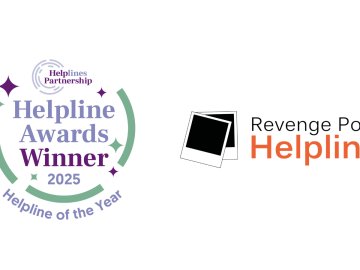Hello, my name is Mary I work for an organization that safeguards children online. We have major concerns that one of your students has been engaging in very risky behavior online; they have been talking to adults and have sent some images using an app called Musically”… “Can you confirm that this girl is one of your students?
A lot of schools have contacted the Professionals Online Safety Helpline recently about receiving calls like this. Understandably a lot of schools on the receiving end of this type of call or email are scared, worried and a bit confused.
While it’s true that a few of the organisations behind these calls may be operating with the best intention to safeguard young people online it’s worth asking yourself two key questions:
- How do they know that information?
- Are there any ethical implications of how they are obtaining this information?
Data Protection
The first school to call us raised the first issue:
- If I confirm that this is indeed one of our students, isn’t that a breach of data protection?
We have all had data on the mind recently with GDPR so it’s not surprising this was their first thought, and it’s completely right. We also have to consider who the caller/person is. In the worst case scenario it could be that the child is in a care setting and the person calling is someone no longer allowed access to the child. By sharing that information you could potentially be putting them at risk.
It could be that it’s a well-meaning person genuinely concerned for the child’s welfare, but that then poses another question:
- Why do they need the confirmation?
Well, that leads onto their second motive:
“Clearly your students have a problem staying safe online, perhaps we can come to your school and give them a presentation on online safety, for a small fee.”
Advice to schools
There are currently a few organisations operating in this way; if you receive a call from one go to their website, have a look. Think critically about who is telling you this information and why.
Do not confirm the child is attending your school.
Ask for the evidence to see what kind of communications they have had- if they are unwilling to share, ask yourself why.
How does it work?
These organisations create accounts on apps they know kids use and pose as either adults or peers. They then reach out to children, having chats and seeing how much they share. If the child then responds to them, they then have a reason to contact the school.
You might be thinking, what’s the issue? And on the surface this might seem like a good idea. It’s effective and who knows you might actually save someone from getting in trouble. However, let’s switch it up and look at it from a child’s perspective.
Through the eyes of a child
You’re 9 years old and you have a Musical.ly account. It’s open because you want to be a famous dancer when you’re older and the more people that see you, the more exposure you get, and it could happen.
You upload your most recent video and get some messages, one is from someone who looks older and they say how much they like your video. You respond; have a conversation and they tell you they are a dance teacher and ask if you’d like to learn more? This is great!
They ask what school you go to and if they can see a picture of you to see if you have ‘the look’. You send a selfie.
At school the next day the Headteacher- calls you into their office. Your mum is coming in because they are concerned. You get reminded about online safety and realise the dance teacher was not genuine.
You ask yourself: Why are people spying on me? Why would that person lie about who they are? Can I ever trust anyone online? I should have known I wasn’t good enough.. I’m so stupid...I’m so embarrassed.
Now, some of those lessons are valuable. No, you probably shouldn’t trust everyone online, but actually there are a lot of people online you can trust and it is a brilliant tool to make connections. How many of you are on LinkedIn in and have found business connections through it?
What's the problem?
While this practice may give the child the opportunity to take stock and think about their digital literacy, there are better, less frightening ways to open up this thought process. Ways that don’t risk giving them a massive complex about talking to people and feeling free to express themselves online.
Also it’s worth considering what this teaches them about deceiving people. After all how would we feel as adults if we were caught out in this way?
It goes back to the messaging of safety that we have slowly developed over generations. Think about crossing the road- for children we have a funky hedgehog that tells them to stop look and listen. For adults we have (previously) had a very graphic video of a small girl being hit by a car at 30 mph – THINK speed.
Here we’ve decided that scaring children probably isn’t the most effective or frankly nice way to get through to them. So why when it comes to online safety do we think this is ok?
We need to think more critically about how we affect children’s emotional wellbeing and development in our approaches to them. On a wider scale more and more apps are being developed to filter and monitor children’s internet usage in the name of protecting them.
Have a conversation
We need to consider, what rights children have to their own personal and private life. Perhaps the answer is not honey traps and spy tools, but having open conversations with adults without the fear of being judged. Allowing them the space and freedom to tell you something is wrong without fear of reprimand.
Young people will make mistakes, but isn’t that part of learning? The real challenge isn’t protecting them from ever being exposed to something that may upset them, but helping them to develop the resilience they need as they grow up in an ever more digital world.
Training
If you are interested in arranging online safety training session for your school, make sure it is from a reliable source. UKCCIS has published this guidance for education settings for Using External Visitors to Support Online Safety Education.
SWGfL offers a range of bespoke training options for teachers, parents and young people, all delivered by one of our experienced Online Safety Consultants, who have a range of experience working across such organisations as Alternative Provision Schools, Foster and Adoption agencies, Police child protection units and with overseas clients has lent flexibility to the organisation.






